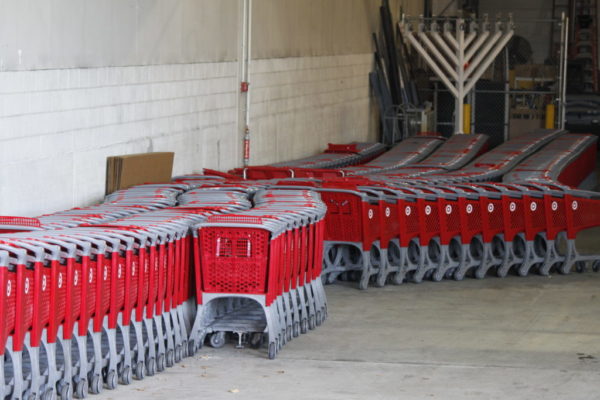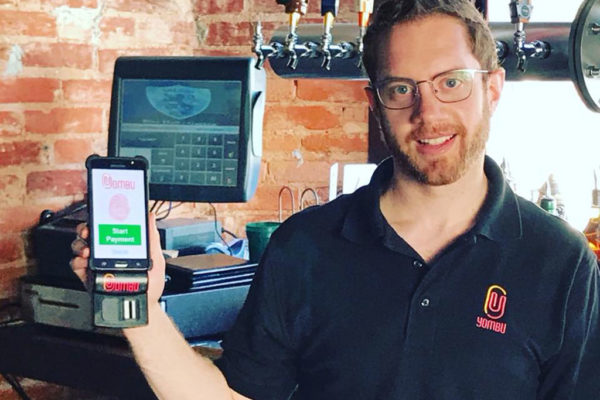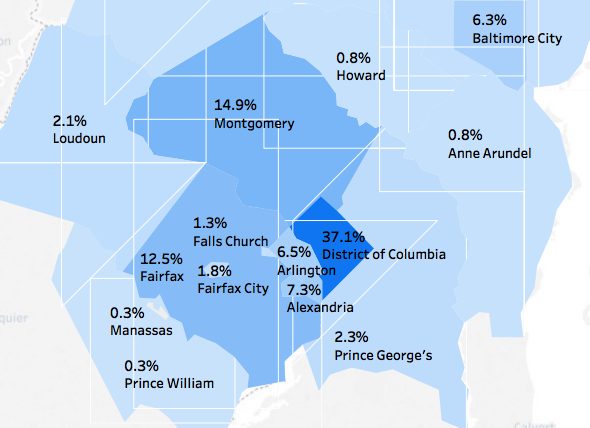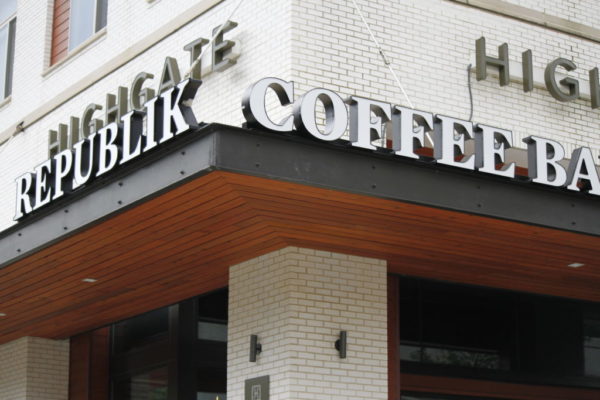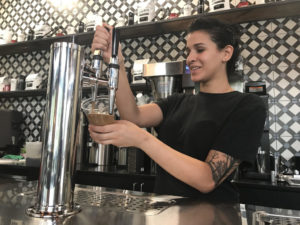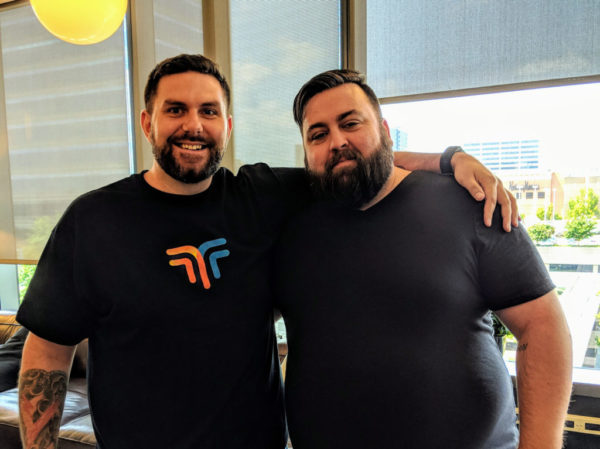Developer Buys NADA HQ — “The Meridian Group has acquired the NADA headquarters building and an adjacent development site, adding to its growing Boro District near the Greensboro Metro station in Tysons.” [Washington Business Journal]
Police Expanding Dressing Room Filming Case — Fairfax County Police have added Fair Lakes Promenade and Springfield Town Center to the list of shopping centers where they think 39-year-old Mumtaz Rauf secretly filmed women in the dressing room of stores like Forever 21, Gap, H&M, and Old Navy. Rauf was already suspected of filming at Fair Oaks Mall and Tysons Corner Center. [FCPD]
Park Fees May Increase — “Fees for using the Fairfax County Park Authority’s RECenters, gardens, historic sites, rental facilities and trails would increase under a slate of fee changes proposed by agency officials. The fee package would bring in an estimated $656,000 more revenue, officials said.” [InsideNova]
Tysons Startup Moving to California — “Tysons personal data startup Kork… recently got a $5 million term sheet from a New York-based private equity firm for its Series A round that values the company at $15 million… But the growth has also led to another big moment — Kork plans to move to California in the coming months, according to CEO and co-founder Robert Wensley. ‘We tried really hard to raise money here in D.C. but it’s impossible unless you are cybersecurity of some sort,’ Wensley said.” [Washington Business Journal]
Tysons Startup Raises $10 Million — “McLean-based Verato Inc., which provides cloud technology to consolidate medical records, has raised $10 million in Series C financing… Verato has already outgrown its 6,000-square-foot headquarters, so it plans to move in July to another Tysons space totaling 12,000 to 14,000 square feet.” [Washington Business Journal]
New residential buildings are coming to The Boro, but a new partnership with WhyHotel means many of them might temporarily be hotel-style rentals before they’re leased.
WhyHotel is a startup based in D.C. that takes unrented units from recently-built apartments, from studios to two-bedroom units, and rents them out as hotel spaces and pay some of the rent back to the developer. Meanwhile, on-call staff handle the cleaning and other guests needs.
In addition to new WhyHotel locations planned in Arlington, the company announced Monday that it will partner with The Meridian Group and Kettler to operate a “pop up” hotel in The Boro (8395 Greensboro Drive). Up to 150 residential units will be used as WhyHotel rentals. Guests will be able to stay in the units starting late summer or early fall next year.
The new WhyHotel spaces will be located in Rise, a 27-story luxury high-rise apartment building scheduled to open sometime in 2019.
Image via The Meridian Group
Yombu, a startup at MakeOffices in Tysons that specializes in fingertip authentication, recently expanded its reach into New York City, California and Colorado.
Originally reported by DC Inno, fitness centers in Manhattan and other locations have started using Yombu to authenticate gym entrance and training sessions. Joe Falit, CEO of Yombu, told Tysons Reporter the push into New York came as part of Yombu’s partnership with Motionsoft, a management and software company that operates in fitness and entertainment centers across the country.
Falit said the gyms use the fingerprint software to authenticate people coming in and out of the facilities, as well as using it to sign for training sessions to avoid fraud.
Yombu is expanding into 35-40 new locations, of which 25 are in Manhattan. Falit said Yombu may expand into as many as new 60 locations in the near future.
In 2019, Falit said his aims are to add new distribution channels for the technology and continue making technical improvements.
“We still do payments, but overall we’re becoming [more of an] authentication company,” said Falit.
For now, though, Falit says he plans on doing more work from home as he helps raise his daughter, who was born last week.
Photo courtesy Yombu
Fairfax startups are economically strong but disproportionately tied to the public sector, even compared to other nearby jurisdictions, according to the 2017 Startup Census.
Adam Zuckerman, founder of census creator Fosterly, spoke to the Fairfax County Economic Advisory Commission meeting earlier this month to offer a recap of Fairfax’s role in the survey of local startups.
In total, 48 companies from Fairfax participated in the survey, while 377 businesses from around the region were surveyed in total.
Some findings:
- The Fairfax startups that participated in the survey generated $28 million dollars in revenue in 2017 and projected 194 percent growth in 2018.
- Startups throughout Northern Virginia generated $108 million in revenue and projected 166 percent growth.
- Throughout the entire region, startups generated $193 million in revenue and projected 217 percent growth overall.
- Fairfax County is home to about 12.5 percent of startups in the D.C. area.
According to the survey, startups in Fairfax also derived less of their revenue from consumers or private businesses than the regional average.
- Fairfax startups derived 66 percent of their revenue from private sector customers.
- Regional startups averaged 89 percent revenue from private customers.
“If you look towards the larger set, only 11 percent of revenue in the overall set came from the public sector,” said Zuckerman. “So Fairfax County companies have a disproportionate amount of public sector revenue than the larger ecosystem.”
Ryan Touhill, chief of staff for the Alexandria Economic Development Partnership, said in the survey analysis that the regional shift away from a reliance on the public sector is a positive trend for local economic diversification.
For Fairfax, Zuckerman said this public sector reliance for startups that are generally less than five years old is unusual because most public sector deals require a track record that startups generally don’t have. Most startups, Zuckerman said, start off working in the private sector before dipping their toes into the public sector when the product is proven.
The survey also found that the top five industries in Fairfax for startups were technology and services, computer software, real estate, financial services, and management and consulting.
There was one unfortunate item of news about one company in particular: Fosterly, the company running the census. Unless another organization takes over the mantle, Zuckerman says this year’s census will be the last.
“We’re not doing it again this year,” said Zuckerman. “We’re going to be talking to a few entities to see if they want to continue the census… but the resources weren’t there.”
Photo via Fosterly
Republik Coffee Bar was founded out of frustration.
Elan Irving, the company’s director of operations, said when the founders of the coffee bar were looking for premium coffee options in the area, they were underwhelmed. Recently, the coffee shop that started one year ago in Arlington has branched out into Tysons.
The Republik Coffee Bar in Tysons is located on the ground floor of the mixed-use Highgate (7915 Jones Branch Drive) just east of Tysons Galleria. It opened in June.
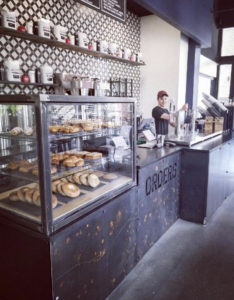 “We were looking for a place to enjoy premium coffee served in an inviting environment staffed by friendly baristas with a pleasant ambiance,” said Irving. “Surprisingly, there are very few places that embody all of these qualities, so we decided to provide such space for like minded coffee lovers.”
“We were looking for a place to enjoy premium coffee served in an inviting environment staffed by friendly baristas with a pleasant ambiance,” said Irving. “Surprisingly, there are very few places that embody all of these qualities, so we decided to provide such space for like minded coffee lovers.”
Irving said the largest issue that faced the burgeoning company initially was finding a price balance.
“One of the challenges is to keep prices low without sacrificing on the quality of the product as well as keeping a staff of highly qualified baristas,” said Irving. “We were always in pursuit of better coffee, better brewing methods, and very competitive prices. We don’t believe in charging $5 for a six-ounce cappuccino.”
Republik Coffee Bar is in the midst of an aggressive expansion campaign. In six months, Republik plans to open two more locations inside D.C. and eventually another in Fairfax County.
“If you are afraid of taking calculated risks, you shouldn’t be in business of investing in new businesses,” said Irving. “This is also true in our business. We are very confident in our concept and very happy to see the response we received in Ballston. This has encouraged us to expand into other locations.”
For now, Republik Coffee Bar is local, but the company has much larger ambitions if the continued regional launches go well.
“Our short term goals are establish our brand into a very respectable local brand in the D.C. metro area,” Irving said. “If we are successful in achieving this, we will continue to expand regionally and then one day, nationally.”
No wallet? No problem.
With Yombu, everything from financial transactions to gym access is at your fingertip. Now, this Tysons company is starting to branch out across the country.
Yombu is a tech startup based out of MakeOffices in Tysons. The company lets customers of a business confirm their identity for something like purchasing an item or signing into a membership with only a fingerprint scan.
“We want to be the way people pay and the way people engage so you don’t need anything other than you,” said Joe Falit, one of the two co-founders of Yombu.
Yombu started in Northern Virginia, but has since expanded into D.C. and Maryland. Falit said the company is focused on gradually building into more cities and building locally-centered networks.
Yombu’s new deal with gym software company Motionsoft means that the company is about to receive a major boost in users as it spreads to 26 gyms across the country.
Yombu started one year ago with zero users. Today, they are at 15,000, which is 5,000 more than their initial goal for 2018.
The company expands its user-base through two types of markets.
The first is through merchants or “quick-serve” transactions, like coffee shops or dry cleaners. In a location like this, a customer can authenticate their fingerprint once as they pay with a card, and the card will be linked with that print. Things like rewards traditionally tracked through punch cards can also be tracked through Yombu.
Getting merchants on board can be difficult. Falit said many they talk to initially say that credits cards work fast enough. But once shown how much faster lines can move and how much more consistent the rewards programs can be with a fingerprint scan, they usually sign up.
The second type of market is membership. Yombu is used to sign in or out of a membership area, like a gym, and while Falit said the company started with mostly quick-serve transactions, they’re finding membership to be the much more lucrative use of the technology.
“If you’re a gym and you now use Yombu to have membership through finger, you’re basically making everyone sign up,” said Falit. “We see these memberships as hubs. At coffee shops, we might get 20 percent of people there to sign up. But at the gym, we get 100 percent of people to sign up.”
As Yombu prepares to launch in Philadelphia soon and in gyms across the country, back at home in Tysons the program is starting to become more and more commonplace.
Yombu is currently being used in 56 locations throughout the D.C. area — 30 merchant locations and 26 gyms. On one rainy day along a few weeks ago, Falit watched as 325 new users signed up for the program as they flocked into coffee shops throughout the region, all of them paying for their coffee with a single touch.
Photo via Yombu
Today, information technology departments are largely reactive — called to fix problems after they happen. But the Tysons startup TaskFit.io has developed artificial intelligence tech that, if it catches on, could supplement if not replace the help desk entirely.
TaskFit.io is an IT automation software platform that can be installed onto a laptop, server, or edge device (like routers) to gather metrics on that device and help fix it when an issue occurs.
TaskFit.io’s AI programs are constantly collecting data as the system is running and adapting to meet problems that come up. Problems can be identified and remedied before the user even recognizes that one exists.
“When you have an issue with your laptop, you call support,” said Tim Marcinowski, co-founder of TaskFit.io. “Your internet goes down and you’re on the phone. We’re the first line of defense for support for organizations through our agents, which are AI that can learn based on data we collect and take action before the user has to report it to support.”
Marcinowski said that for many companies, IT is outsourced. This can work for a smaller company just getting started, but Macinowski said problem comes when the companies start to expand and starts to outgrow their IT service.
“There’s a number you can point to [in each business], where if they bring on X amount of customers, they need X amount of people supporting those activities,” said Marcinowski.
TaskFit.io is currently a small company, based in the Tysons WeWork coworking space. Marcinowski and co-founder Peter Fraedrich run the technical side of the company, along with two advisors and three or four contractors.
“We haven’t taken any investments and have been gaining revenue since month one,” said Marcinowski. “We started on our own with our own money and have been doing okay for right now. Eventually we will raise early stage capital within the year.”
Two started in April with $90,000 of the two founders’ own money. The company has $40,000 in recurring annual revenue, according to Marcinowski, who hopes to push that to $100,000 by the end of the year.
Currently, TaskFit.io has three paying customers and four pilot projects. The pilot projects are unpaid but allow the company to gain insights into the program working in action and allow them to continue developing abilities.
“These companies that are early adopters got free software,” said Marcinowski, “but we’re going to bug you and ask you a lot of questions. Things may break, but we’ll work to get them fixed.”
Like many startups, TaskFit.io has pivoted its focus over time. Early on, Marcinowski says they were originally interested in competing with Google and Amazon to create the first real-time machine learning platform. That evolved into the company’s current platform, but even then product development has been an iterative process of shifting priorities and tough decisions.
According to Marcinowski, what managers said they really wanted was a tech tool to help them figure out what their employees were doing. While this could have been a profitable avenue, it didn’t fit with the founders’ vision for the company.
“We really didn’t want to be the watchdog of employees,” said Marcinowski. “We didn’t want to be that at all, and we didn’t care how much money we made. We aren’t used car salesmen, we wanted to build software that solves problems.”
Photo via TaskFit.io


